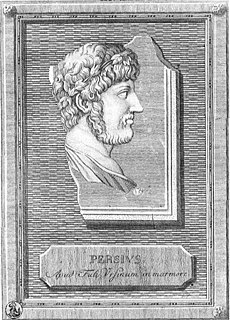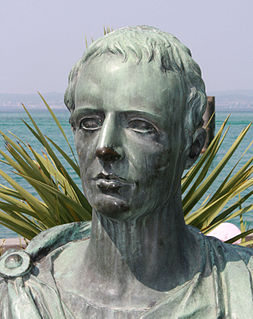A Quote by Juvenal
The only path to a tranquil life is through virtue.
[Lat., Semita certe
Tranquillae per virtutem patet unica vitae.]
Related Quotes
O philosophy, life's guide! O searcher-out of virtue and expeller of vices! What could we and every age of men have been without thee? Thou hast produced cities; thou hast called men scattered about into the social enjoyment of life.
[Lat., O vitae philosophia dux! O virtutis indagatrix, expultrixque vitiorum! Quid non modo nos, sed omnino vita hominum sine et esse potuisset? Tu urbes peperisti; tu dissipatos homines in societatum vitae convocasti.]
The short bloom of our brief and narrow life flies fast away. While we are calling for flowers and wine and women, old age is upon us.
[Lat., Festinat enim decurrere velox
Flosculus angustae miseraeque brevissima vitae
Portico; dum bibimus dum sera unguenta puellas
Poscimus obrepit non intellecta senectus.]
If we keep the path of virtue undefiled through devout and true knowledge, and do not deviate to either side, we will experience the advent of God revealed to us because of our dispassion. For 'I will sing a psalm and in a pure path I will understand when Thou wilt come to me' (cf. Ps. 101:1-2). The psalm stands for virtuous conduct; understanding indicates the spiritual knowledge, gained through virtue, by means of which we perceive God's advent, when we wait for the Lord vigilant in the virtues.
As you climb the mountains of life, stay on the path of virtue. There will be others to help you- your parents, family members, bishops, advisers, and righteous friends of all ages. And if you are weary or take a wrong turn, change your direction and get back on the path of virtue. Always remember that the Savior is there for you. He will enable you to repent, strengthen you, lighten your burdens, dry your tears, comfort you, and continue to help you stay on the path.






























